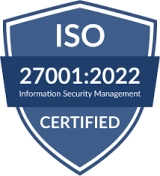Share on:
Meet Lydia, a young businesswoman who operates a meal delivery service. She founded her company as a result of her love for creating delectable dishes and the compliments she received for her culinary skills.
Although she recognizes the potential in her small business, the truth is that she has a lot of business management knowledge gaps. And, she can't seem to give a proper account of all her business money.
You guessed it—when she started her business, bookkeeping was the last thing on her mind. Turning her passion into a source of revenue was all that business meant to her.
Are you like Lydia, this post was specifically written with you in mind.
Since you dropped by, my sure bet is you want to learn more about what bookkeeping for small businesses entails. I'll provide you with all the information you need in this post.
Let's get started.
Table of Contents
-
What is Bookkeeping
-
What is Involved in Bookkeeping for Small Businesses
-
Methods of Bookkeeping for Small Businesses
-
Bookkeeping Software for Small Businesses
-
Why Bookkeeping is Important for Small Businesses.
-
Last Words
What Is Bookkeeping?
The recording and monitoring of your business's everyday financial activities is known as bookkeeping. To further elaborate, it entails categorizing, documenting, and organizing a business' financial transactions.
It is merely a part of accounting; bookkeeping is not accounting. Bookkeeping is done daily. Bookkeeping is essential if you want to avoid being like Lydia in our narrative and not being able to account for every dime in your business.
No matter how tiny your business is, bookkeeping is essential if you want to keep track of your financial activities.
Pro Tip: Do you often confuse bookkeeping with accounting? Here's a tip to distinguish the two.
Accounting comprises analyzing the financial data and developing a financial strategy, bookkeeping only involves recording and reporting financial information.
What Is Involved In Bookkeeping For Small Businesses
Because I promised to give you a beginner's guide to understanding bookkeeping for small businesses, let's find out what's involved.
Recording financial transactions - This involves keeping track of all the money coming in and out of your business, including sales, expenses, bank deposits, and withdrawals.
Categorizing transactions - It's important to categorize your transactions appropriately so that you can generate accurate financial reports and file your taxes correctly.
Reconciling accounts - This involves making sure that the transactions recorded in your accounting system match the transactions on your bank statements.
Managing accounts payable and accounts receivable - This includes keeping track of all the money you owe to vendors and suppliers (accounts payable) and all the money owed to you by customers (accounts receivable).
Generating financial reports - This involves preparing financial statements like balance sheets, income statements, and cash flow statements to help you understand the financial health of your business.
On a minimum scale, there are three financial records involved in small business bookkeeping. They are cash book, sales invoice, and purchase invoice.
The cash book captures the cash flow of your business, which is money coming in or leaving your business.
Sales invoice captures sales whether paid or unpaid.
Purchases invoice captures purchases made in the form of goods and services and how you made them.
Methods of Bookkeeping
There are two major methods for bookkeeping as a small business owner. They are single-entry bookkeeping and double-entry bookkeeping.
Single-entry Bookkeeping:
A straightforward type of bookkeeping is called single-entry bookkeeping. It uses a one-sided approach to recording transactions. This indicates that any transaction, whether a debit or a credit, has an impact on just one account.
To keep track of all the transactions in this kind of system, a ledger is kept. Small enterprises or individuals who do not buy or sell on credit, own tangible assets, and store modest amounts of inventory frequently employ single-entry bookkeeping.
However, because it only provides a partial picture of the financial activity, it might not accurately reflect the financial status of a business.
Double Entry Bookkeeping:
It follows the principle that every transaction affects at least two accounts, and they are recorded as debits and credits. For example, if you make a sale for £25 your cash account will be debited for £25 and your sales account will be credited with the same amount.
In the double-entry system, the total credits must always equal the total debits. When this happens, your books are “balanced.”
This method of bookkeeping is most suitable for small businesses that buy and sell on credit. It leaves less room for error as each transaction recorded double-checks the other.
Bookkeeping Software
The advancement in technology affected every sector, and the business world is not left out. Even though bookkeeping requires the opening of various books such as cash books, general ledgers, and bank reconciliation statements, some small businesses may find it cumbersome especially if they are a sole proprietor business.
Technology has eased the burden for businesses through the use of bookkeeping software. In simple words, bookkeeping software serves as a substitute for what you would do with traditional book and biro record keeping.
Here at Tyms Africa, the Tyms Book is one such software curated to ease the burden of small businesses while allowing you to focus on growing your income and revenue.
The beautiful part is that you don't need prior bookkeeping knowledge to use this software. We have a demo to help you work your way around the app. A trial will convince you.
Why Bookkeeping is Important for small business
Here is the crux of the matter. Why bother with the whole bookkeeping procedure if there is no benefit to you as a small business owner? Here's why.
- Separates business and personal finance: Most small businesses fall victim to mixing up business finance with personal money. This is because most small businesses start up solo, so they carry out the whole management of the business themselves. Newsflash, no business ever hit its zenith that way. Bookkeeping helps you do the separation as it allows you to record and account for every transaction made daily. Staying up and running is at the top of your list as a business owner so embrace bookkeeping!
- Making decisions: Since bookkeeping gives you a hang of the true state of your business, decision-making becomes easier and faster.
- Identifying mistakes early: Tracking every transaction daily and regular reconciliation of accounts, helps small businesses identify any mistake in the financial records and make early corrections.
- Keeping Track of the Financial Health of your Business: Bookkeeping provides you with the financial information you need to know the financial state of your business.
Last Words
You don't want to get overwhelmed with bookkeeping tasks, hence it's advisable to break up the process into daily, weekly, monthly, quarterly, and yearly as the case may be.
This way, you won't miss out on any information. I believe this post has provided you with the information you need to carry out bookkeeping for your small business.
Did you find this post helpful? Drop us a comment and share it with any small business owner.


Blessing Obiora
6 mins read


Mobolaji Maborukoje
6 mins read


